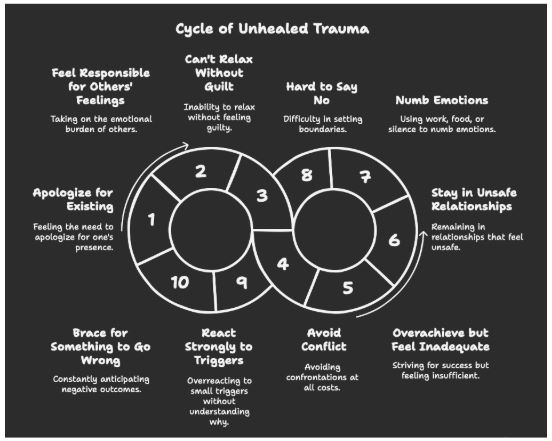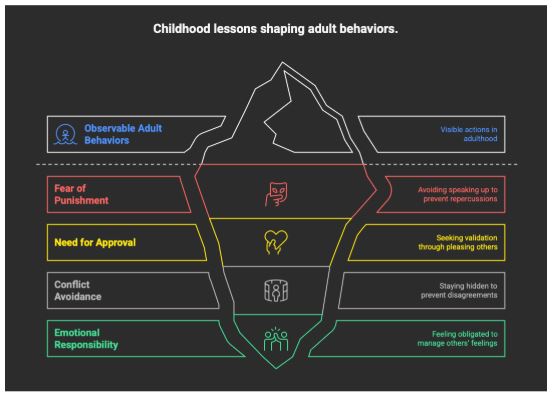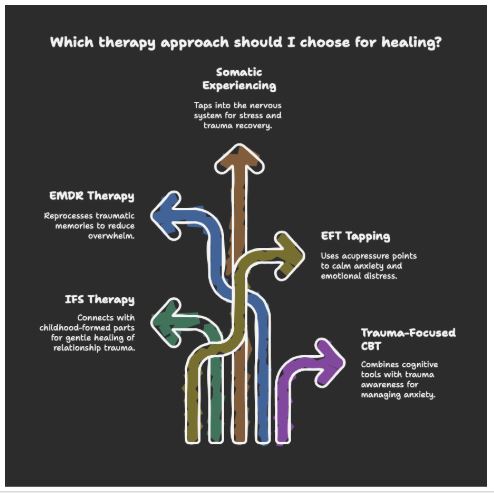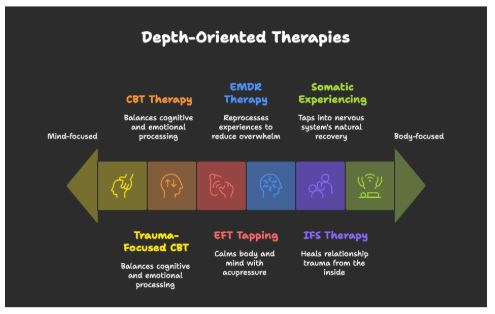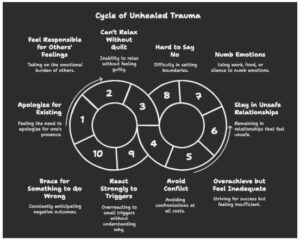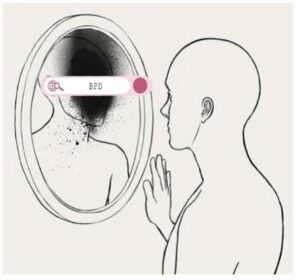Trauma isn’t always a single catastrophic event. Often, it’s being in an environment of chronic emotional strain: emotional neglect, being shamed, not feeling seen or accepted, or expected to perform. Even if you try to forget it, your brain and body remember it.
Dr. Gabor Maté explains trauma as – “big T” trauma (severe experiences of abuse and violence) and “small t” trauma (the subtle, chronic wounds of emotional disconnection, invalidation, or the absence of safety and attunement). He elaborates:
“The trauma is not what happens to you, but what happens inside you as a result of what happens to you.”
You adapted to survive, when you experienced chronic stress, and became what was needed of you – the overachiever, the fixer, the peacemaker. You might have learned that you needed to be perfect, keep everyone happy, or hide your true emotions in order to be accepted.You discovered that your emotions were unacceptable, love was dependent on your performance, or that the comfort of others came before your own needs.
It successfully protected you and your nervous system learned that those survival strategies work.
However, those survival strategies don’t just fade away with time.
They evolve into adult patterns such as procrastination, hyper-independence, perfectionism, emotional detachment, chronic guilt, people-pleasing, or the pervasive sense that you’re “too much” or “not enough.” What once helped you survive now hinders your growth.
However, none of this is your fault.
Healing means slowly learning that you’re safe now, and you don’t have to keep living by those old survival rules. It means understanding how your nervous system shaped itself in response to what it lacked and how it continues to protect you, even when the threat is long gone.
Trauma Doesn’t Mean You’re Broken
Unhealed childhood trauma isn’t a sign of weakness or a character flaw. It’s about wounds that didn’t get the time, space, or safety to heal.
A landmark ACE (Adverse Childhood Experiences) study explains individuals with a high number of adverse experiences in childhood are significantly more likely to develop chronic health issues, mental illness, and difficulties in relationships. In India, a 2020 study by the Indian Journal of Psychiatry found that 1 in 3 psychiatric patients reported significant early life trauma, yet most had never named it as such.
The presence of trauma without recognition is more common than we realize. Many high-functioning adults carry invisible wounds that whisper rather than scream.
These behaviors can look like:
- Feeling guilty for resting or simply existing.
- Apologizing for existing.
- Feeling responsible for everyone’s feelings.
- Inability to relax without guilt.
- Avoiding conflict at all costs.
- Overachieving but never feeling enough.
- Staying in unsafe relationships.
- Numbing your emotions with food, work,or shopping.
- Having difficulty saying “no,” even when it hurts you.
- Reacting strongly to small triggers, without knowing why.
- Feeling like you’re always bracing for something to go wrong.
- Shrinking your needs so others feel comfortable
As psychologist Dr. Nicole LePera notes:
“Most trauma responses are invisible to others but exhausting to the person living through them.”
Dismantling Common Myths That Keep You Stuck
Myth 1: “But I wasn’t abused”
This belief holds so many back from getting the help they desperately need. Trauma doesn’t just come from what was done to you – it can also stem from the lack of what you needed: emotional security, validation, a steady presence, or even just someone to say “I see you.”
You can love your parents deeply and still carry emotional wounds from unmet needs. Both gratitude and grief can exist in the same breath.
Myth 2: “But I had a good childhood.”
Full meals, a roof overhead and quality education don’t erase the damage of silence, pressure, or emotional neglect.
Perfectionism that was praised, being the “easy child” no one checked on, or carrying responsibilities of your caregivers.
Both gratitude and grief can live side by side. You can honour your childhood and still acknowledge where it hurts.
Healing doesn’t mean blame, it means understanding.
Real-Life Manifestations of Trauma
- Functioning, on the outside but feeling exhausted or disengaged, on the inside.
- Feeling abandoned when your partner withdraws.
- Inability to trust your partner.
- Overworking to feel worthy, and feeling like a fraud.
- Harsh disapproving inner critic.
- Hypervigilance and anxiety.
- Lying awake after a conflict, replaying every word, even if nothing “big” happened.
- Freezing when someone asks you what you want.
A Therapy Room Moment: Guilt in Disguise
A woman once said, quietly, “I hate taking leave from the office. It makes me feel useless.”
We stayed with her emotions. She cried.
Her father used to call her lazy when she rested, even for a moment.
Now, as an adult, stillness triggered shame. And guilt followed her like a shadow.
She wasn’t weak. She had just never been allowed to just be.
In therapy, we don’t shame these patterns. We trace them back, understand their origin, and slowly begin to loosen their grip, with compassion and evidence.
How Trauma Shows Up in Your Body
Unhealed trauma lives in your nervous system. You may not recall the exact words or events, but your body remembers how it felt:
- That lump in your throat when someone criticizes you.
- That knot in your stomach during arguments.
- That urge to say “sorry” just to keep the peace.
As Dr. Bessel van der Kolk writes in The Body Keeps the Score:
“The body keeps the score. If the memory of trauma is encoded in your body, it’s not enough to tell your story.”
Healing begins when you stop blaming yourself, and start listening to what your body has been trying to say all along.
What Can You Do To Heal Your Trauma?
Healing doesn’t entail changing who you are. It’s about embracing your true self without fear.
Here are a few ways to begin:
- Name Your Patterns
Start by observing your patterns:
Do you shut down in conflict? Over-apologize to avoid being abandoned? Or feel numb and have difficulty accessing your emotions?
Try journaling them as they arise and name them as a survival response.
- Practice Reparenting
Many of us are carrying unmet emotional needs from childhood. Reparenting involves offering yourself the acknowlwdgments you didn’t receive, such as:
“You are allowed to rest.” “Your voice matters.” “You don’t have to earn love.” “You are not too much.”
You’re learning to relate to yourself with compassion, rather than criticism.
- Create Safety Anchors
Consider keeping a sensory anchor close—a calming scent, a soothing texture, or a grounding breath technique. These anchors can help restore equilibrium when your body enters fight, flight, or freeze. - Consider Depth-Oriented Therapy
While surface-level coping tools have value, sustainable transformation often requires deeper exploration. Depth-oriented trauma therapies work with the body, emotions, and brain in a holistic, integrated way to restore a sense of inner safety.
Here are a few approaches with strong evidence behind them:
- Internal Family Systems Therapy (IFS): Helps you connect with different “parts” of yourself developed in your early years. It’s a gentle method of healing attachment wounds or relationship trauma.
- EMDR Therapy India: Eye Movement Desensitization and Reprocessing is a powerful approach for those dealing with past abuse, complex PTSD, or painful memories that feel stuck. It makes those experiences less overwhelming by assisting your brain in reprocessing them.
- Somatic Experiencing Therapy: Your nervous system’s innate capacity to heal from stress and trauma is tapped into by this body-based therapy. If you have a tendency to freeze, shut down, or feel numb when overwhelmed, this is especially beneficial.
- EFT Tapping Therapy: To relax your body and mind, EFT (Emotional Freedom Techniques) involves tapping on particular acupressure points. It’s a simple yet powerful method for reducing anxiety, emotional distress, or triggers for trauma.
- Trauma-Focused CBT and CBT Therapy: This modality combines a trauma-aware perspective with structured cognitive tools. It’s great for managing intrusive thoughts or anxiety, while also being mindful of the emotional layers underneath.
Looking for an EMDR therapist in Gurgaon, or support through IFS therapy, Somatic therapy, or any kind of mental health therapy in India?
At Coach For Mind, we focus on finding the right fit—for you.
Whether you’re navigating grief, emotional neglect, relationship trauma, or just trying to make sense of overwhelming feelings, what matters most is that your therapist meets you where you are and moves at your pace.
These aren’t quick fixes. They’re slow, steady steps back to yourself.
How Therapy Helps You Rewire Your Life
At Coach For Mind, we don’t push or pressure. We walk with you.
Here’s what therapy might feel like:
You say something you’ve never said out loud before—
And instead of being judged, your therapist helps you explore what’s beneath it. The deeper patterns. The old stories. The pain that’s been waiting to be seen.
Slowly, you begin to believe you’re not too much.
FAQ: What Does Unhealed Childhood Trauma Manifest As?
- What does unhealed childhood trauma feel like in adults?
- Functioning, on the outside but feeling exhausted or disengaged, on the inside
- Feeling abandoned when your partner withdraws.
- Inability to trust your partner.
- Overworking to feel worthy, and feeling like a fraud.
- Feeling guilty for resting or simply existing.
- Apologizing for existing.
- Feeling responsible for everyone’s feelings.
- Inability to relax without guilt.
- Avoiding conflict at all costs.
- Overachieving but never feeling enough.
- Staying in unsafe relationships.
- Numbing your emotions with food, work,or shopping.
- Having difficulty saying “no,” even when it hurts you.
- Reacting strongly to small triggers, without knowing why.
- Feeling like you’re always bracing for something to go wrong.
- Shrinking your needs so others feel comfortable
- Harsh disapproving inner critic.
- Hypervigilance and anxiety.
- Lying awake after a conflict, replaying every word, even if nothing “big” happened.
- Freezing when someone asks you what you want.
These are not personality flaws. They are your nervous system doing its best to protect you from old wounds.
- Can childhood trauma show up in physical health?
Absolutely. Trauma doesn’t just live in the mind, it embeds in the body. It can manifest as chronic pain, headaches, gut issues, fatigue and adrenal burnout, sleep disturbances, or autoimmune symptoms. Studies show high ACE scores correlate with chronic illness later in life. So if your body feels like it’s carrying more than it should, it probably is. - What if I don’t remember my trauma clearly? Can I still heal?
You don’t need a clear memory to begin healing. Trauma often hides in patterns, sensations, and emotional reactions, not just memories.
You might not remember what was said, but your body remembers how it felt:
That freezing sensation when someone raises their voice, overwhelming panic when someone withdraws love, urge to please, even when you’re exhausted
Trauma-informed therapy focuses on what’s showing up now, not forcing you to relive or remember everything from your past.
- Is therapy the only way to heal from childhood trauma?
No,but it’s often the safest, most structured path, especially when the pain runs deep. Books, support groups, journaling, and somatic practices can offer comfort, insight, and short-term relief.
But they often don’t touch the root. They don’t change the inner wiring shaped by years of unmet needs or emotional neglect.
Therapy offers what those tools can’t: relational healing. When you sit with a therapist who truly sees and accepts you, it begins to rewrite the parts of you that never felt seen.
- Can online therapy really help with trauma?
Yes, and for many, it’s even more effective than in-person therapy.
Being in your own space often makes it easier to:
- Open up without fear of being “watched” or judged
- Regulate your body in familiar surroundings
- Access consistent support, even on tough days
At Coach For Mind, our online sessions are trauma-informed, secure, and built around your pace and comfort.
Whether you’re in Delhi, Bangalore, or a quiet town, support is just a click away.
- How do I know if my therapist is trauma-informed?
A trauma-informed therapist will never rush or push you.
They will:
- Prioritize your emotional safety over “getting somewhere fast”
- Help you feel seen, not pathologized
- Respect your boundaries and always ask for consent
- Offer grounding tools for when emotions feel overwhelming
- Use language that helps you reconnect with agency, not shame
At Coach For Mind, all our therapists are trained in trauma-sensitive approaches, with specialties in modalities like EMDR, IFS, Somatic Experiencing, and more.
- What if I don’t feel “ready” to talk about it?
That’s 100% okay. You don’t have to tell your whole story to begin healing.
Sometimes, the most powerful sessions begin with silence, body awareness, or simply naming how hard it is to be here.
Trauma-informed therapy honors readiness over speed. In therapy session we follow, no pressure,, no “shoulds and shouldnt’s.” Just your journey, at your pace and you choose.
- What happens in trauma therapy at Coach For Mind?
You’ll start with a free discovery call,where we would understand, what kind of support you’re looking for. Then, we match you with a therapist who specializes in that area,whether that’s emotional neglect, grief, relationship trauma, or anxiety from past wounds.
You’re Not “Too Much”. You’re Just Carrying Too Much.
If any part of this made you feel seen, maybe that’s the part ready to be heard.
You don’t have to do it alone.
✨ Begin with a free 15-minute discovery call at www.coachformind.com

